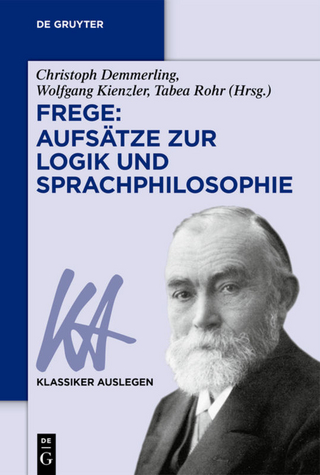
If A, Then B
Columbia University Press (Verlag)
978-0-231-16105-3 (ISBN)
- Lieferbar (Termin unbekannt)
- Versandkostenfrei innerhalb Deutschlands
- Auch auf Rechnung
- Verfügbarkeit in der Filiale vor Ort prüfen
- Artikel merken
The authors explain the turbulent times of the enigmatic Aristotle, the ancient Stoic Chrysippus, the medieval theologian Peter Abelard, and the modern thinkers Rene Descartes, David Hume, Jeremy Bentham, George Boole, Augustus De Morgan, John Stuart Mill, Gottlob Frege, Bertrand Russell, and Alan Turing. Examining a variety of mysteries, such as why so many branches of logic (syllogistic, Stoic, inductive, and symbolic) have arisen only in particular places and periods, If A, Then B is the first book to situate the history of logic within the movements of a larger social world. If A, Then B is the 2013 Gold Medal winner of Foreword Reviews' IndieFab Book of the Year Award for Philosophy.
Michael Shenefelt has a doctorate in philosophy from Columbia University and began teaching logic after having worked previously as a newspaper reporter. He is also the author of The Questions of Moral Philosophy. Heidi White has a doctorate in philosophy from the New School for Social Research and a master's degree in the history of ideas from the University of Texas at Dallas. She teaches philosophy and intellectual history and is a former U.S. Peace Corps Volunteer. Both authors teach Great Books at New York University's Liberal Studies Program.
Preface Introduction: What Is Logic? 1. The Dawn of Logic 2. Aristotle: Greatest of the Greek Logicians 3. Aristotle's System: The Logic of Classification 4. Chrysippus and the Stoics: A World of Interlocking Structures 5. Logic Versus Antilogic: The Laws of Contradiction and Excluded Middle 6. Logical Fanatics 7. Will the Future Resemble the Past? Inductive Logic and Scientific Method 8. Rhetorical Frauds and Sophistical Ploys: Ten Classic Tricks 9. Symbolic Logic and the Digital Future 10. Faith and the Limits of Logic: The Last Unanswered Question Appendix: Further Fallacies Notes Bibliography Index
| Zusatzinfo | 18 illus. |
|---|---|
| Verlagsort | New York |
| Sprache | englisch |
| Maße | 152 x 229 mm |
| Themenwelt | Geisteswissenschaften ► Philosophie ► Logik |
| ISBN-10 | 0-231-16105-0 / 0231161050 |
| ISBN-13 | 978-0-231-16105-3 / 9780231161053 |
| Zustand | Neuware |
| Haben Sie eine Frage zum Produkt? |
aus dem Bereich


